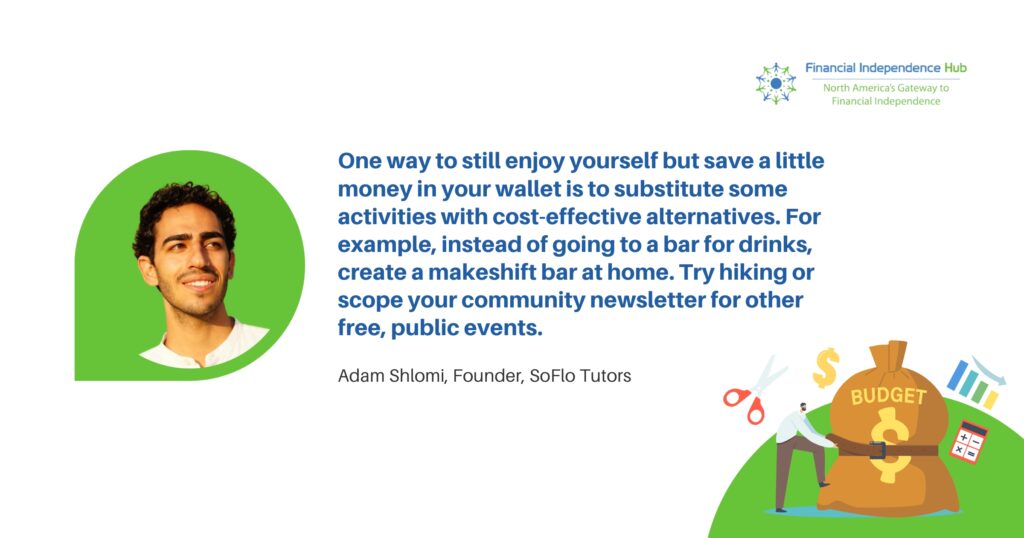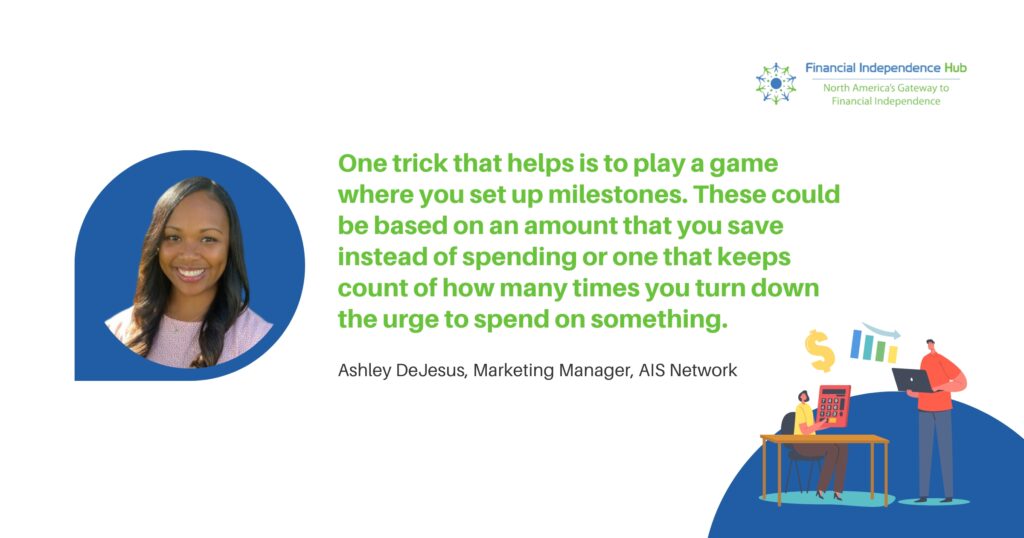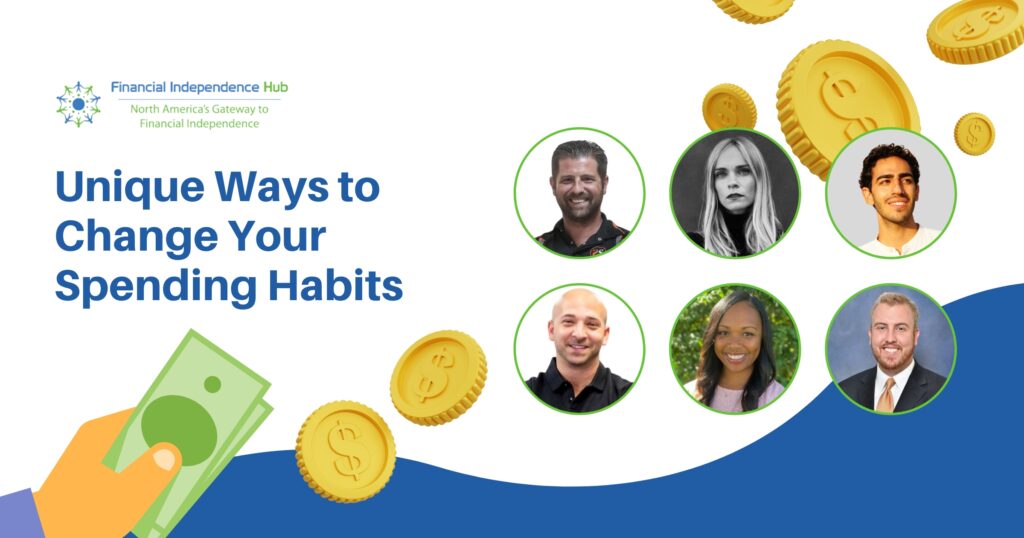What is one unique way someone can change their spending habits for the better?
To help you improve your spending habits, we asked CEOs and business leaders this question for their best tips. From trying to not purchase anything online for one month to trying the envelope method, there are several unique tips to help you change your spending habits for the better.
Here are 12 unique ways to change your spending habits:
- One Month No Online Purchases
- Check How Long You Can Go Without Something
- Change Paid Activities to Be Cost-effective
- 30-day Challenge
- Track Your Spending for One Week
- Buy from Your Local Market
- Reduce Impulsive Purchases
- Shop With Lists Only
- Ask a Friend
- Use Cash as a Payment Option
- Set Savings Milestones and Rewards
- The Envelope Method is One Way to Change Spending Habit
A Month with no Online Purchases
My wife and I recently did a one-month challenge on not purchasing anything online. The breaking point was coming home after a long weekend and finding over 10 packages on our doorstep between the two of us ordering online. We heard of a challenge where you don’t purchase anything for a month, but knew that wouldn’t work for us. We decided just not to purchase any items online. If we needed something we had to go to the store and purchase the item. We realized we didn’t have to buy as much stuff as we were previously ordering online. After the challenge month was over, we did both change our spending habits and don’t buy nearly as much as we previously did online. We also found out that the physical store tends to be less than purchasing your items online. –– Evan McCarthy, President CEO, SportingSmiles
Check how long you can Go without Something
When you’re contemplating buying something, the best way to evaluate your intentions is to check how long you can go without it. If you decide on a date until which you believe you will not need this product or service, postpone your spending until that date. Once the new date arrives, ask yourself the same question and set another date. Do this thrice, and chances are the futility of adding it to your list of purchases will finally hit. It’s also highly probable that you won’t even choose to remember the later dates and forget all about spending your hard-earned money on something you never required in the first place. —Riley Beam, Managing Attorney, Douglas R. Beam, P.A.
Change Paid Activities to be Cost-effective
Going out for drinks, going bowling with friends, dancing at the club: these are all fun activities that are definitely worth your time and money. These expenses, however, add up in the long run and one way to still enjoy yourself but save a little money in your wallet is to substitute some activities with cost-effective alternatives. For example, instead of going to a bar for drinks, create a makeshift bar at home. Try hiking or scope your community newsletter for other free, public events. — Adam Shlomi, Founder, SoFlo Tutors

30-day Challenge
One unique way someone can change their spending habits for the better is by doing a 30-day challenge. One of the most significant barriers to saving money is impulsive buying. It’s easy to fall for an online advertisement that claims to anticipate your needs and wants. But there is a workaround:
– Take a screenshot of the ad rather than clicking on it.
– Create a folder on your desktop to store all these screenshots.
– Check the folder after 30 days to see if you still wish to purchase that item.
The 30-day challenge is also applicable to offline purchases. Write down what you want to buy, give yourself 30 days, and then decide if you still wish to purchase. After a 30-day wait, you may be shocked by the items that no longer interest you. —Tiffany Homan, COO, Texas Divorce Laws
Track your Spending for One Week
This will give you an idea of where your money is going and where you can cut back. At the end of the week, look at your spending and see where you can save. It may be helpful to keep a budget so you can see where your money is going each month. If you find that you are spending too much money on unnecessary things, try to cut back and save some money. —Tzvi Heber, Founder, CEO & HR Head, Ascendant Detox
Buy from your Local Market
Online shopping has the power to entice you to buy more. When it comes to groceries and other food items, it is better to visit the local market or vendors. The online stores not only charge extra over delivery but taxes are also added. One coupon or discount may deceive you into believing that you saved a lot which is not always the case. If you’re serious about starting a saving habit, go to your neighborhood farm stand on the weekly to buy locally produced food items. They are equally economical and healthier. — Kurt Uhlir, Chief Marketing Officer, kurtuhlir
Reduce Impulsive Purchases
Impulsive purchases and splurging are the bane of financial stability and can often make consumers feel content at the moment. However, they quickly build up and harm your capacity to manage your money. These purchases might start negative spending habits and even empty out your savings account if you aren’t careful. Each month, hundreds of dollars could be carelessly squandered, endangering one’s capacity to pay bills.
Try to wait from a week to a month before you want to make an impulse purchase. If, after this time, you are still considering the product and think it will be useful to you, go ahead and buy it. This prevents the “impulse” element and causes you to think carefully about whether the purchase is worthwhile. — Guy Sharp, Relocation Advisor, Andorra Guides
Shop with Lists Only
Never go into a store without a list. Having a list of items you need will help to ensure you are purchasing only necessary items. Then don’t deviate from the list. If an item isn’t on the list, do not purchase it. Reducing the number of impulse purchases can improve our budgets and ensure we have healthier spending habits. This will initially take discipline, just as developing any new habit does. However, with practice, it will become routine. — Caroline Duggan, Chief Brand Officer, Lumineux
Ask a Friend
Managing expenses can be difficult, especially if you have issues with impulse control. There is nothing wrong with splurging once in a while. It should, however, not negatively affect your financial situation. Being conscious of your spending habits helps you become financially responsible. An unconventional way of changing your habits is by taking the help of a close friend or family member. Changing your habits is a solo effort. Your friend can help reinforce this change. Keep in mind to choose someone who is financially responsible. They can guide you and help you as you bring about this change. Taking advice from someone you know will make it easier for you to change. Since change is hard, having a friend supporting you will help. Plus, close friends can provide tough love if you make a mistake. — Alexandra Cotes, Social Media & Marketing Director, Flowercompany
Use Cash as a Payment Option
Our spending habits have changed tremendously in the last 10 years. As people are getting several options for payment like UPI, Wi-Fi cards, etc., and getting offers on using them like cashback, EMI option, etc. which makes them expend more. To change your spending habits for the better, you can use cash as a payment option for your expenses. Psychology says that paying via cash makes us feel to pay less or minimally. This would help you to manage your spending more efficiently and cut down the expenditure cost to save more. Practicing it on regular basis leads to improving your financial capability also. — Shay Berman, President, YourDigitalResource
Set Savings Milestones and Rewards
It is difficult to change your spending habits because you know how good instant gratification feels when you should be learning how to postpone your gratification to break the pattern. One trick that helps is to play a game where you set up milestones. These could be based on an amount that you save instead of spending or one that keeps count of how many times you turn down the urge to spend on something. At the end of each milestone, set a reward for yourself to motivate you to keep going. As you go along, you will realize that you are moving further away from instant gratification and developing the patience to wait for a milestone. You can push these milestones and rewards further away as you go along, and soon enough, you will be able to turn around your spending habits for good. — Ashley DeJesus, Marketing Manager, AIS Network

The Envelope Method is one way to Change Spending Habits
One unique way to change spending habits is the “envelope method.” The way it works is you would save up and then divide your money into different envelopes according to what you spend the most money on, such as rent, food, entertainment, etc. Once the envelope for that category is empty, you can no longer spend money in that area until next month.
This method can work well because it can help people be more mindful of their spending and force them to budget their money better. Additionally, it can help people to cut back on unnecessary spending and save more money overall. — Benjamin okyere, Founder and CTO, Stress Reliever
Terkel creates community-driven content featuring expert insights. Sign up at terkel.io to answer questions and get published


